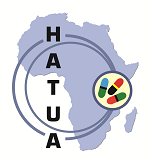Holistic Approach to Unravel Antibacterial Resistance in East Africa
![]()
The HATUA Research Consortium is a 3-year study that seeks to investigate the diverse drivers of antibiotic resistance in urinary tract infections in East Africa. The potential harm that increasing levels of antibacterial resistance (ABR) will have on human health is vast. One of the most vulnerable regions to the increase in antibiotic resistance is Africa where, in comparison to other regions of the world, the burden of infectious diseases is highest.
The economic, cultural and ethnic diversity of Africa mean that the problems surrounding ABR across African countries are likely be distinct from other regions of the world. For example, the availability of antibiotics can be patchy, and the routes of access to antibiotics are variable. Social, cultural and lifestyle drivers of ABR in Africa also have specific features – closer communal living in cities with variable water/sanitation, and closer animal husbandry in rural communities.
HATUA aims to address ABR in Africa and fill the gaps in knowledge. The research will target three main areas that comprise the problem: the bacteria that are antibiotic resistant and cause disease; the amount of antibiotics that are used to treat disease; and the behaviour of humans that governs how antibiotics are used and supplied.
The three elements incorporate epidemiological, economic, cultural and societal factors that interact and contribute to the problem. Bringing together research covering these 3 elements will provide a holistic view of ABR in East Africa.
The project has established a surveillance network across Uganda, Kenya and Tanzania that is comprised of sites that monitor and characterize the ABR bacteria that cause disease at that location, maps the use of antibiotics in the health facilities and the surrounding communities, and captures the behaviour and attitudes of humans that are responsible for their use in these setting.
Using a multidisciplinary approach, encompassing, microbiology, genomics, epidemiology, statistics, social sciences and geography, we will seek to explore and describe the relationships between these elements, and identify the drivers of ABR.

